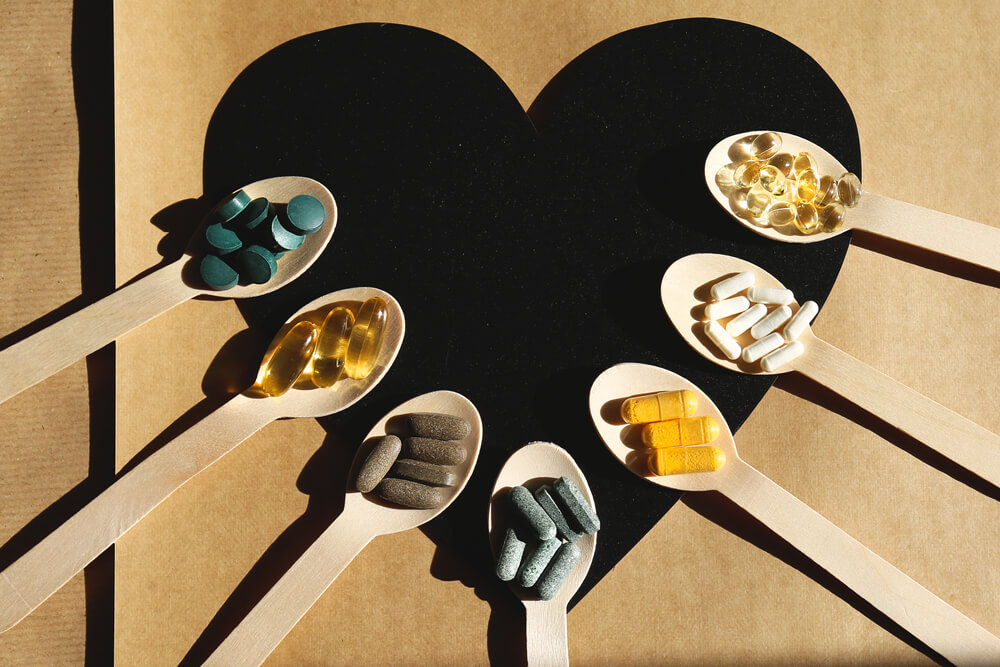Why Americans' passion for vitamins does more harm than good
'03.09.2022'
Source: The Daily Mail
Are you sure you're not taking too many vitamins? At least half of US residents eat handfuls of them and have no idea that some supplements are associated with the risk of diarrhea, kidney stones, and even cancer.

Vitamin supplements are often viewed as an instant solution to an almost endless range of problems. Fading skin? Add some calcium. Weak or brittle nails? Try vitamin B. Not in the mood? You probably do not have enough sun, but - you can not go out, because there is vitamin D in capsules, writes The Daily Mail.
Journalists talked with nutritsiologami, who explained in what cases the benefits of vitamins and dietary supplements to food can turn into harm to health. Dr. JoAnn Manson, a professor at Harvard University, author and co-author of numerous studies on vitamins, says:
“According to population studies, vitamin supplements have never been of significant benefit. But if I say that I do not recommend taking vitamins without the need, it is understood that supplements are still prescribed to certain categories of patients. For example, if we are talking about pregnant women or the elderly.”
There are over 90 vitamin, mineral and other dietary supplements on the US market, and indeed many US residents, including children, eat them like candy: the industry made $000 billion in 2017.
Multivitamins are relatively safe.
Multivitamins, as a rule, contain fairly low doses of each vitamin separately, which does not allow in most cases to cover the full daily dose to a great extent. Depending on which brand you buy, the content of multivitamins may vary, but they often include several B vitamins (B1, B12 and Biotin), vitamins A, C, E, D, K and a number of minerals such as calcium, magnesium and potassium.
A large study in which Dr. Manson participated showed that taking a multivitamin may even be associated with a decrease in overall mortality, but it was about men, and other studies in this direction have not yet been conducted. Perhaps the fact is that the “average” American diet is devoid of most vitamins and minerals, so adding them to the diet improves the situation.
But things are not so smooth with taking high doses of certain vitamins and minerals that it has become increasingly popular in the United States in the past few years.
Vitamin E increases the risk of cancer
Vitamin E is advertised to help improve skin and eye health and the immune system at a dosage of 1000 mg per day. This vitamin helps fight free radicals, oxidation byproducts that attack healthy cells in our body. It is very important to get this vitamin from nuts, green vegetables and their oils, but it is important to know that its deficiency is very rare, and an overdose is fraught with trouble.
Vitamin E, the expert says, can increase the risk of stroke, heart failure in women and men, and even prostate cancer in men - this has been known over the past 10 years as a result of large-scale studies. As for women, experts at Harvard University recommend getting 11 mg of the vitamin with each meal - that's only 33 mg per day, not 1000 at all.
On the subject: Medicines that can never be combined with a tan: a list
Vitamin A poisoning can be fatal.
In the right doses, vitamin A helps support immunity, vision and reproductive health. Deficiency of this vitamin is rare nowadays. But too high a dose of vitamin A can cause side effects that range from unpleasant to fatal. Dr. Paul Thomas, a nutritionist at the National Institutes of Health, says poisoning can include diarrhea and nausea, but to a serious degree even fever and death (though this has so far only been known in arctic conditions, where researchers have had to eat liver out of hunger husky, literally packed with vitamin A). Excess vitamin A in pregnant women can lead to the birth of a baby with birth defects.
Vitamin C and calcium can disrupt the gastrointestinal tract
The upper limit of vitamin C for adults is 2500 mg per day. You will have to eat 50 oranges to exceed the dose, but it is also contained in 2,5 medium capsules, although the dosage is up to 3 per day on the package. An overdose of vitamin C is fraught with stomach cramps, nausea and diarrhea. Most studies show that vitamin C does not have the protective effects we hope for, does not prevent colds and flu, does not strengthen the immune system. Taking more than 2500 mg of calcium will cause discomfort in the gastrointestinal tract and increase the risk of becoming the owner of kidney stones.
It is important to know!
Mixing vitamins, minerals, and medicines can pose health risks and is definitely not a magic wand for health and longevity. You can safely take one type of multivitamin, but in any case, if you drink anything else, talk to your doctor first. This is all the more true for situations when you want to get a complex fortification and you intend to combine several dietary supplements.







